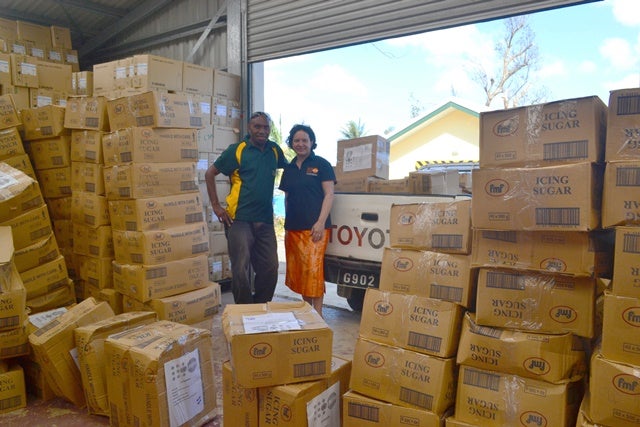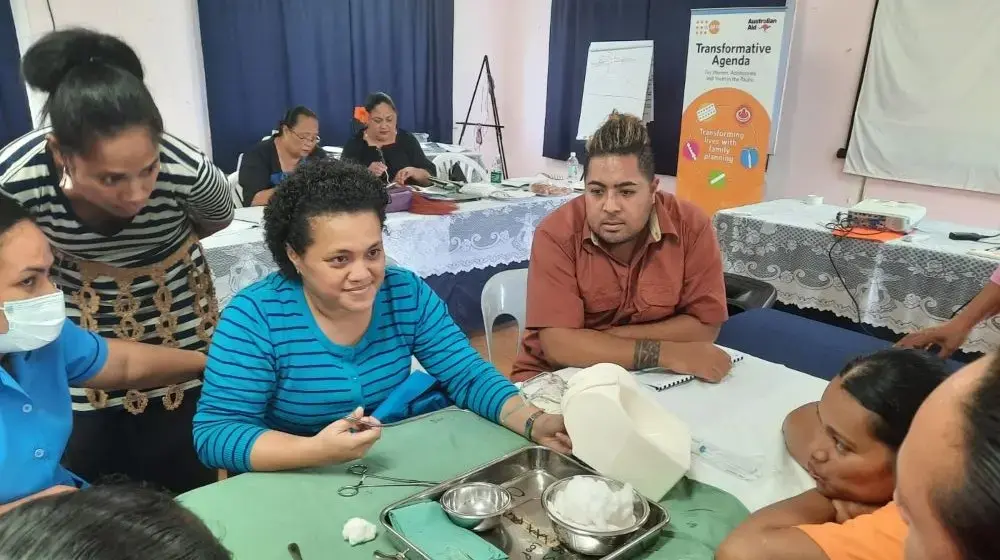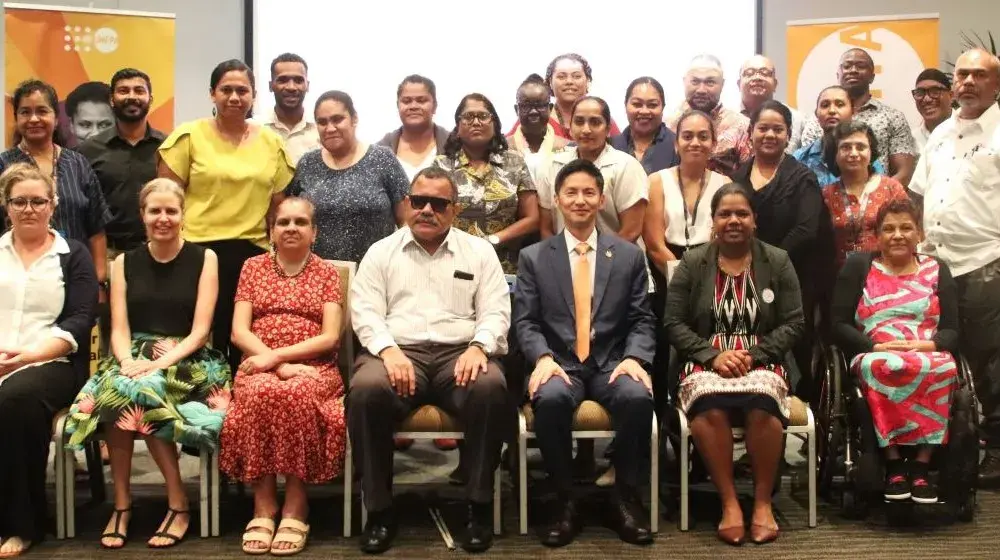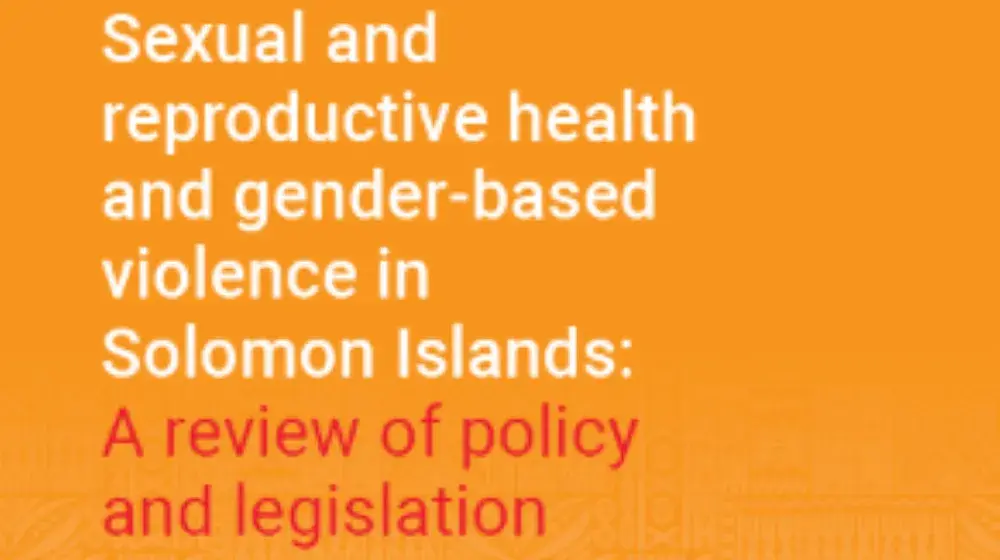UNFPA Pacific, Port Vila, Vanuatu (March 30, 2015) - Women blocked a road in a settlement within Port Vila, in the Cyclone Pam-ravaged Pacific island nation of Vanuatu March 27, standing their ground to secure a place in a queue for a visiting integrated United Nations Population Fund (UNFPA) team, led by the Vanuatu Ministry of Health and supported by the Vanuatu Women's Center.
The women shielded themselves from the scorching sun, with umbrellas, with children in tow or wrapped-up infants in their arms, almost overwhelming the skeletal team at Fresh Wind Ohlem which was expecting only 40 pregnant and or lactating mothers.
"Today was a good day," Apisai Tokon, head of the Reproductive Health and Family Planning Unit of the Department of Public Health said.
"The dignity kits are very appropriate and relevant as mothers need these basic things at this time, much appreciation to UNFPA for these kits. We were able to work from the aid post and saw a lot of women and children who were given supplements, multi-vitamins and deworming tablets."
The UNFPA and Ministry of Health staff were complemented by Margaret Soul, a midwife and nurse from the Neil Thomas Ministry Clinic, two Vanuatu Women's Center staff and community health workers.
"The people of Vanuatu are proving once again how resilient they are after Cyclone Pam practically destroyed 5 of the 6 island provinces in the archipelago," Maha Muna, UNFPA Pacific Gender Adviser said.
"UNFPA reached out to partner community-based organizations and helped them to mobilize an emergency response plan for their communities. This includes maternal health outreach, adolescent reproductive health programming and GBV prevention and response initiatives."
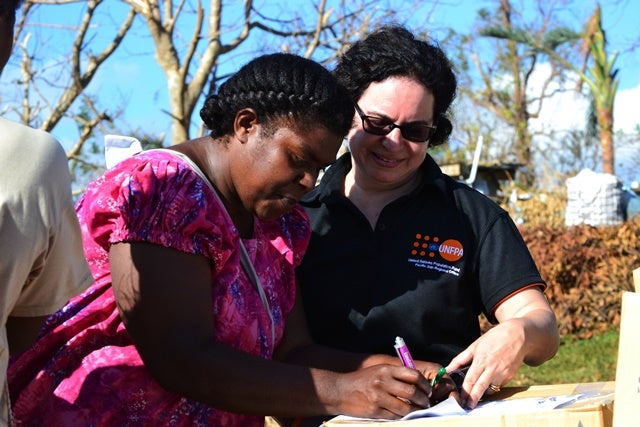
The UNFPA deployed staff and 400 prepositioned dignity kit in its initial response, and on March 28, the team distributed 46 kits at Fresh Wind Ohlem.
Dignity kits with hygiene supplies are prepared for women in humanitarian situations, the impact of which is experienced differently by women and girls though their needs are not usually prioritized in national responses.
Reproductive health kits which were airfreighted into Vanuatu on March 28 will replenish the stock at damaged hospitals and health centers, to ensure support for emergency obstetric care, antenatal care and post-natal care services.
A 2012 study on the prevalence of violence against in Vanuatu reported 60 per cent intimate partner violence and 48 per cent non-partner violence. Gender-based violence(GBV) can be exacerbated in emergency evacuation centers and host-family accommodation.
Research officer at the Vanuatu Women Counselling Centre Leikita Abel said discussions centered on the impact of the cyclone and recovery approaches.
"It was good to come with the Ministry of Health and UNFPA so women had discussions with us before they went on to health checks - if we were to work together like this more we would get more information while the people received more services," Ms Abel said.
Activities related to the Cyclone Pam response the UNFPA has been involved in include:
- The production of a Flash Appeal to raise almost $30m for emergency relief and mobilization of a United Nations (UN) emergency relief funding (CERF) of $225,000 for reproductive health and protection programmes, reflected in the Flash Appeal;
- Reconnected with community-based organizations to develop outreach programmes of reproductive health services and protection messages to women and youth, and working with vibrant women's machinery to ensure that the humanitarian relief remains responsive to women and girls;
- Organized a campaign to distribute Dignity Kits to pregnant and lactating women, as well as women who access Vanuatu Women's Counseling Center crisis services; and
- Advocating for the reopening of markets for women to enable them to sell garden crops and earn money for children to return to school, buy household supplies and pay for healthcare.
